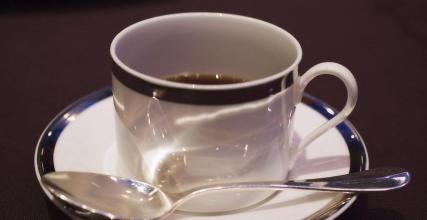Jamaica Coffee Manor introduction to Jamaica Coffee area Atlanta Manor
By 1948, however, coffee quality had deteriorated and Canadian buyers refused to renew contracts, so the Jamaica government set up the Coffee Industry Board to save the fate of premium coffee. By 1969, the situation had improved as Japanese loans improved production quality and thus guaranteed the market. Even in 1969, Japanese coffee drinkers were willing to pay insurance for the coffee. By now, the coffee has reached the point of being fanatically loved.
By 1981, about 1500 hectares of land in Jamaica had been cleared for coffee, followed by investment in another 6000 hectares. In fact, today's Blue Mountain region is a small area of only 6000 hectares, and it is impossible for all the coffee labeled "Blue Mountain" to be grown there. An additional 12000 hectares are devoted to growing two other types of coffee (non-Blue Mountain coffee): High Monuntain Supreme and Jamaica Prime Washed Jamaican.
Blue Mountain Coffee is one of the world's best grown coffees, and Jamaica's weather, geology and terrain combine to provide an ideal location. Ridges running through Jamaica extend to the east of the island, and the Blue Mountains rise to more than 2100 meters. The weather is cool, foggy and rainy frequently. Use this rich soil to harmonize with rainwater. Here, coffee trees are grown in a mixed cropping system, alongside banana and avocado trees on terraces.
Some small estates also grow Blue Mountain coffee, such as Wallenford Estates, Silver Hill Eatate, and Martinez. Martinez's Atlanta Estate, etc. Even the largest planters in the region are small-scale farmers by international standards, many of them smallholders whose families have worked the land for two centuries. Jamaica's coffee industry faces a number of problems, such as the impact of hurricanes, increased labour costs and difficulties in mechanising terraces. Many small estates and farms are difficult to rationalize.
Jamaica Blue Mountain Coffee However, Blue Mountain Coffee is one of those coffee retailers that value reputation and want to stock some coffee anyway. Britain's leading retailer says it will continue to sell Blue Mountain coffee year-round, regardless of price, because it has many customers who identify only as Blue Mountain

Important Notice :
前街咖啡 FrontStreet Coffee has moved to new addredd:
FrontStreet Coffee Address: 315,Donghua East Road,GuangZhou
Tel:020 38364473
- Prev

Introduction to Indonesian Coffee Flavor and Taste characteristics of Indonesian Coffee Manor
It is said that during the second World War, when the Japanese occupied Indonesia, some Japanese soldiers went to a cafe run by the Mantenin to drink coffee. They thought the coffee provided by the owner was very good, so they asked the owner about the name of the coffee, and the owner mistakenly thought they were asking who they were, so they answered that they were Mantning.
- Next

Puerto Rico Coffee Manor introduces Puerto Rican Coffee Flavor and Taste San Pedro Manor
The Caribbean Sea is a warm, romantic and mysterious sea, and a lot of good coffee is also around this ring sea, such as the Blue Mountains of Jamaica, Dominica, Crystal Mountain of Cuba, Yuko of Puerto Rico and so on. These are the most famous rare and expensive coffee in the world. These island beans give people a light smell of milk and elegant flowers, delicate and soft acidity, although it is still difficult to avoid coffee caused by the island's muggy climate.
Related
- Does Rose Summer choose Blue, Green or Red? Detailed explanation of Rose Summer Coffee plots and Classification in Panamanian Jade Manor
- What is the difference between the origin, producing area, processing plant, cooperative and manor of coffee beans?
- How fine does the espresso powder fit? how to grind the espresso?
- Sca coffee roasting degree color card coffee roasting degree 8 roasting color values what do you mean?
- The practice of lattes: how to make lattes at home
- Introduction to Indonesian Fine Coffee beans-- Java Coffee producing area of Indonesian Arabica Coffee
- How much will the flavor of light and medium roasted rose summer be expressed? What baking level is rose summer suitable for?
- Introduction to the characteristics of washing, sun-drying or wet-planing coffee commonly used in Mantenin, Indonesia
- Price characteristics of Arabica Coffee Bean Starbucks introduction to Manning Coffee Bean Taste producing area Variety Manor
- What is the authentic Yega flavor? What are the flavor characteristics of the really excellent Yejasuffi coffee beans?

